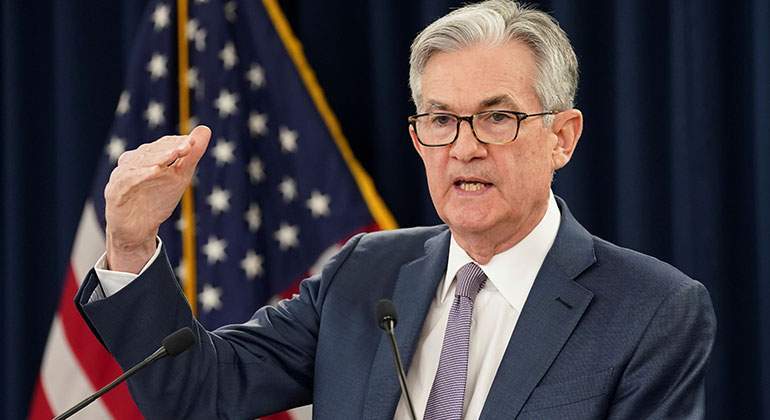WASHINGTON (by CHRISTOPHER RUGABER – AP) — Federal Reserve Chair Jerome Powell suggested Thursday that inflation will pick up in the coming months but that it would likely prove temporary and not enough for the Fed to alter its record-low interest rate policies.
His message of wait-and-see patience caused bond yields to jump and stocks to fall further, signaling that investors foresee stronger growth and higher inflation on the horizon. The yield on the 10-year Treasury note had jumped from below 1% at the end of last year to roughly 1.4% Wednesday — and then surged above 1.5% during Powell’s remarks.
Stock investors, too, dumped shares in the midst of Powell’s remarks, in which he suggested that the Fed would need to see both a near-full recovery in the job market and a sustained rise in inflation above its target level before considering a rate hike.
The S&P 500 index ended Thursday with a loss of 1.3% and was showing just a sliver of a gain for the year. The tech-heavy Nasdaq pulled back 2.1%. Higher yields on government bonds can entice some investors to sell stocks and buy Treasurys instead, thereby forcing stock prices down.

Powell also said the outlook for the economy has improved after three months of weak job growth. But he cautioned that the economy and the job market are still far from fully recovered and that full employment would not be achieved this year.
The chairman also offered no signal that the Fed might respond soon to rising rates on Treasury securities by altering its bond-buying policies. The central bank is purchasing about $80 billion a month in government bonds. Some analysts argue that the Fed could focus more of those purchases on the 10-year Treasury to keep it from rising much further.
“The market was really looking for more of a definitive stand perhaps against what’s happened with yields,” said Lisa Erickson, head of traditional investments at U.S. Bank Wealth Management. “It was looking for more assurance, for example, that the Fed might take action.”
The surge in Treasury bond yields has also forced up mortgage rates. Last week, the average rate on the benchmark 30-year mortgage breached the 3% mark for the first time since July, according to mortgage buyer Freddie Mac.
Powell suggested, though, that the Fed would sit tight for the foreseeable future.





